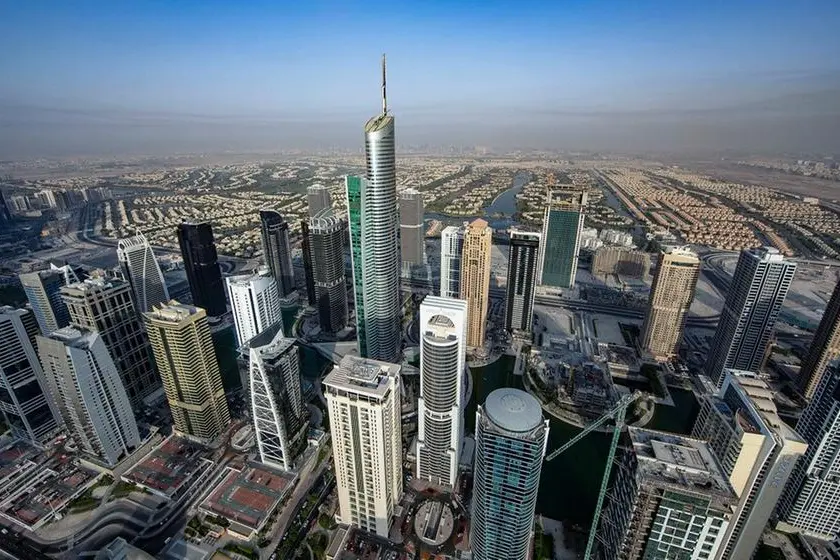Now Reading: Dubai Short-Term Vacation Rentals 2025 Set for Record Growth
-
01
Dubai Short-Term Vacation Rentals 2025 Set for Record Growth
Dubai Short-Term Vacation Rentals 2025 Set for Record Growth

Dubai Short-Term Vacation Rentals 2025 Market Thrives
Dubai Short-Term Vacation Rentals 2025 are becoming one of the hottest asset classes in the UAE real estate market. The shift from traditional long-term leases to flexible short-term stays, powered by platforms like Airbnb and Booking.com, is reshaping how investors and homeowners maximize returns. From Dubai Marina to Palm Jumeirah, demand for vacation rentals is growing at record speed, fueled by rising tourism, digital nomads, and residents seeking lifestyle flexibility.
Why Dubai Short-Term Vacation Rentals 2025 Are Booming
The rise of short-term rentals is not a coincidence. Dubai welcomed over 17 million international visitors in 2024 and is on track to surpass that in 2025. With Expo 2020’s legacy, ongoing global events, and Dubai’s growing reputation as a business and leisure hub, visitors prefer flexible accommodation options over traditional hotels.
For property owners, short-term vacation rentals generate higher yields than long-term leases. While a traditional 12-month rental contract may secure steady but modest returns, short-term lets often deliver 20% to 40% higher annual income, especially in high-demand zones.
Key Hotspots Driving Short-Term Rental Growth
Short-term rentals are particularly thriving in premium and lifestyle-focused communities:
- Dubai Marina – Popular with tourists, young professionals, and digital nomads, Marina apartments are among the most frequently booked short-term rentals.
- Palm Jumeirah – Luxury travelers prefer Palm villas and apartments, with nightly rates far higher than city-center alternatives.
- Downtown Dubai – Proximity to Burj Khalifa, Dubai Mall, and DIFC makes it a year-round favorite.
- Jumeirah Beach Residence (JBR) – Beachfront living continues to attract families and groups for extended stays.
These areas not only attract tourists but also cater to business executives and expatriates looking for fully furnished, flexible homes.
Investors See Short-Term Rentals as a Strong Asset Class
Dubai Short-Term Vacation Rentals 2025 are increasingly being recognized as a formal real estate investment category. With the city’s regulated holiday home framework under the Dubai Department of Economy and Tourism (DET), landlords can legally rent properties on a short-term basis by registering with the authorities.
This regulation ensures quality standards, improves tenant confidence, and creates a level playing field for investors. As a result, both individual landlords and institutional investors are entering the market.
Benefits of Investing in Short-Term Vacation Rentals

Property owners shifting to short-term rentals enjoy several benefits:
- Higher Rental Yields – Earnings per night or week often exceed long-term rental averages.
- Flexibility – Owners can use the property themselves during off-peak periods.
- Market Adaptability – Prices can be adjusted according to seasonal demand.
- Global Appeal – Platforms like Airbnb give global visibility to Dubai properties.
For middle-income investors, studio apartments in emerging communities also provide accessible entry points, while luxury properties in Palm Jumeirah offer unmatched premium returns.
Risks and Challenges to Consider
Despite the attractive returns, short-term vacation rentals come with their own set of challenges:
- Regulatory Compliance – Owners must ensure proper licensing and adherence to Dubai’s holiday home regulations.
- Higher Operating Costs – Furnishing, utilities, cleaning, and property management can eat into profits.
- Occupancy Fluctuations – Seasonality affects booking rates, requiring smart pricing strategies.
- Competition with Hotels – Dubai has a strong hospitality sector, which competes with rentals.
Investors must work with experienced property managers to balance these risks and maintain high occupancy.
Short-Term Rentals as Part of Dubai’s Tourism Vision
The growth of Dubai Short-Term Vacation Rentals 2025 aligns with Dubai’s long-term tourism and economic strategy. The city aims to welcome 25 million visitors annually by 2030, positioning itself as a global destination for business, leisure, and lifestyle migration.
Short-term rentals support this vision by expanding accommodation options beyond hotels and making Dubai attractive to diverse visitor profiles, from digital nomads to long-stay business travelers.
Future Outlook: Will Short-Term Rentals Outperform?
Industry experts believe the short-term rental market will continue to expand over the next five years. The combination of Dubai’s investor-friendly policies, strong tourism growth, and rising demand for lifestyle flexibility makes this asset class a key pillar of real estate innovation.
By 2025, more investors are expected to enter the short-term rental market, and new developments may include built-to-rent communities designed specifically for flexible stays.
Conclusion
Dubai Short-Term Vacation Rentals 2025 highlight a major shift in the UAE’s real estate sector. From Palm Jumeirah villas to Dubai Marina apartments, flexible rental models are offering higher returns, more freedom, and growing global demand.
For investors, this emerging asset class presents a strong opportunity – but success will depend on compliance, effective management, and smart pricing strategies. As Dubai continues to grow as a world-class destination, short-term rentals are set to play a central role in the city’s real estate story.
Read More-Why International Buyers Are Choosing Dubai’s Island Real Estate Projects






















